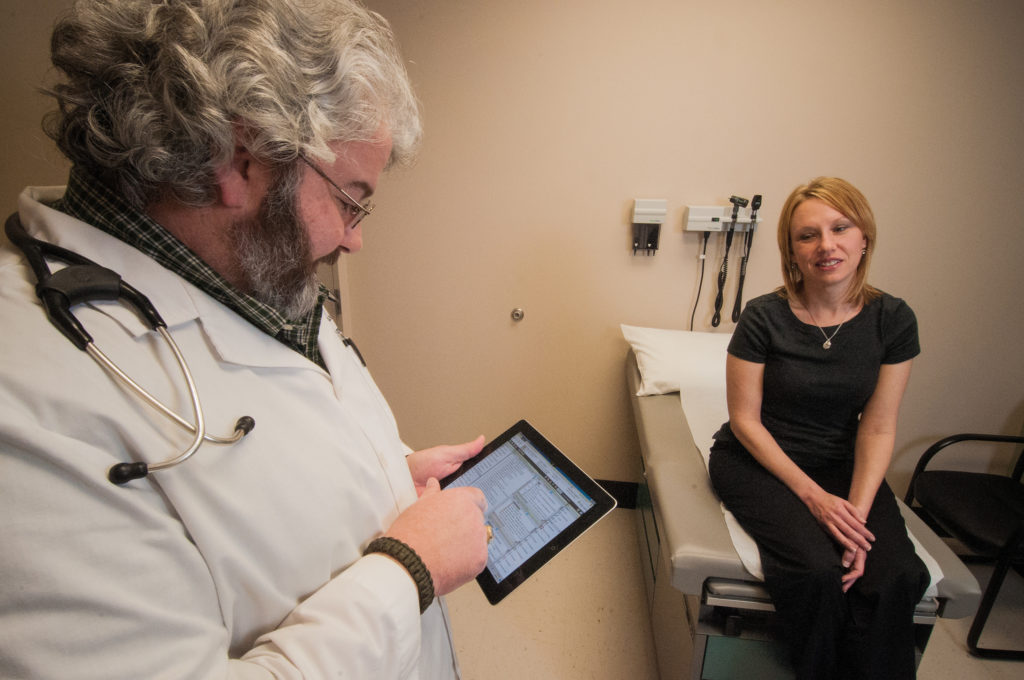For decades, researchers have relied on randomized clinical trials (RCTs) to evaluate the effects of drugs and treatments on patients. However in recent years, with the proliferation of data generated through means like electronic health records, there is a growing interest in real-world evidence (RWE) and the role it has to play in medical product development.
In medicine, RWE refers to evidence that has been gathered from real-world data (RWD), which is observational data generated during routine clinical practice and outside of the context of RCTs. If used properly, there is potential for this type of data to provide a more complete picture of how treatments affect patients in ways that are not represented in clinical trials.

“The clinical care for these patients in real practice tends to be a lot more complicated, and so the effects of the drug that we saw in the RCT might not apply to real clinical practice,” said Jessica Franklin, PhD, Assistant Professor of Medicine at Harvard Medical School and Biostatistician at Brigham and Women’s Hospital. “RWE can help fill in those gaps.”
Franklin, along with Sebastian Schneeweiss, leads the US Food and Drug Administration (FDA)-funded RCT DUPLICATE project, which uses RWE to predict the results of several ongoing trials. This project is expected to play a major role in determining the future of how drugs are developed and approved in the United States.
However, Franklin acknowledges that there are still a number of challenges associated with RWE, including data quality and accuracy. “The first challenge everyone always thinks of is, what is even measured well in these databases? It varies from one type of database to another; what is recorded well in one database may not be recorded well in another. It really requires a deep understanding and knowledge of the database.”
For example, health insurance claims collected for billing purposes wouldn’t necessarily contain all of the clinical details that may be important to researchers, but are very good at capturing outpatient medication use and hospitalizations for major medical events. This type of information also lacks the control and structure of data gathered from traditional RCTs.
“We love randomization because we know we are going to end up with two treatment groups that are similar in all of their patient characteristics, all of their clinical characteristics and their disease stage,” adds Franklin. “The only difference really is what treatments they’re getting. So, that helps us isolate the effects of the treatment when we look at their outcomes.”
In non-randomized research, patients are assigned treatments based on doctor recommendations, leading to a more varied group of patients with different medical needs. As a result, researchers are required to use statistical methods to account and adjust for the differences in the groups being studied.
The full results of Franklin’s RCT DUPLICATE project aren’t expected until 2020, but she is hopeful for the future of RWE and how it may optimize patient care in the years to come.
“If we could get RWE to a place where we feel confident that we can get accurate assessments of effectiveness from it, then we could, in some scenarios, potentially support approval of a new indication for a drug based on RWE,” concluded Franklin.
Franklin had also discussed her experience with RWE at the 2019 Drug Information Association (DIA) Annual Meeting, taking place June 23 to 27 in San Diego.
The course she will teach in is titled “Real World Evidence Studies to Evaluate the Safety and Effectiveness of Therapeutic Interventions – Is the Data Fit for Purpose and How Will You Know?” Joining her in leading the course are also experts Nancy Dreyer, the Chief Scientific Officer & Senior Vice President for IQVIA, Paul Muntner, Professor of Epidemiology and Associate Dean for Research at the University of Alabama at Birmingham and Brian Bradbury, the Executive Director & Head, Data and Analytics, Center for Observational Research for Amgen, Inc.
To register for DIA and to catch this talk as well as dozens more, click here.












Join or login to leave a comment
JOIN LOGIN